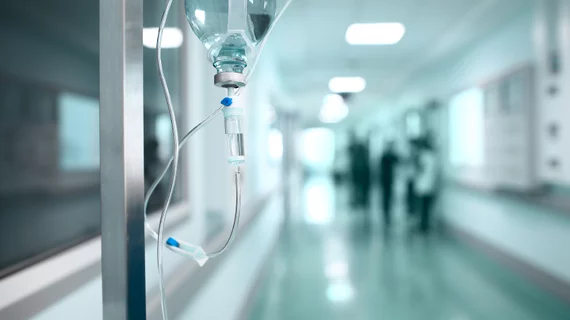Weekend scheduling of nonurgent radiologic procedures promotes faster recovery, shorter stays
Opening hospital doors for nonurgent radiology procedures during the weekend reduces patients’ length of stay, improves their progression toward early discharge and keeps ER admissions manageable, a team of Harvard researchers report in the current edition of the Journal of the American College of Radiology.
“Weekend coverage by imaging and laboratory services and surgical and procedural specialties is typically offered for urgent and emergent situations,” corresponding author Muneeb Ahmed, MD, and colleagues at Beth Israel Deaconess Medical Center and Harvard Medical School in Boston, wrote. “Yet, reduced access to clinical services is associated with worse clinical patient outcomes.”
This is well-documented, Ahmed, an associate professor of radiology at Beth Israel, said, and it’s known across medicine as the “weekend effect.” Countless studies have found hospital admissions during Saturdays and Sundays continue to result in delayed access to care, longer lengths of hospital stays and more negative patient outcomes when compared to weekdays.
Related trials have focused on conditions ranging from burn injuries to myocardial infarction, the authors said, and higher weekend mortality rates have been recorded for 23 of the 100 leading causes of inpatient deaths. But radiologically relevant research on the topic is scarce.
“Interventional radiology (IR) clinical services during weekends are also limited to emergent procedures, even though many other clinical services rely on IR procedures for progression of care,” Ahmed et al. wrote. “No data are available on the anticipated volume, types of cases or impact of expanding availability of routine IR procedures to include weekends.”
The researchers in turn implemented a yearlong study at Beth Israel, where they opened nonurgent procedures to weekend dates “in an effort to reduce patient length of stay and improve clinical care.” During a total of 100 weekend days, hospital staff performed 453 procedures on 447 patients, including venous and enteral access, dialysis interventions, percutaneous drainage and venous, genitourinary and biliary interventions.
Going ahead with weekend services for those procedures meant 24.2 percent of patients were discharged earlier than expected, Ahemed and co-authors reported, which led to 174 hospital days gained. Sixty percent of patients underwent their procedures earlier than expected, too, resulting in 415 days of profession of care gained over the year of study.
“Direct discharge of emergency room patients accounted for 23 percent of the days gained, underscoring the potential role of IR services in preventing unnecessary admissions,” the authors said. “Although direct benefit from profession of care days is more difficult to determine, several studies have demonstrated that earlier access to care at different points during an inpatient course, such as physical therapy or gastrointestinal endoscopy, can lead to overall reduced length of stay.”
Patients and procedures were split evenly between Saturday and Sunday, Ahmed et al. wrote, suggesting a weekend option for radiologic procedures is in high demand.
“Our results demonstrate that initiation of a weekend IR service for nonurgent procedures is feasible and can have a positive impact by early discharges and avoiding unnecessary admissions from the emergency room,” the researchers said. “Given the range of procedures that an inpatient IR service performs, such a program can positively impact patient care across a medical center’s inpatient services.”

